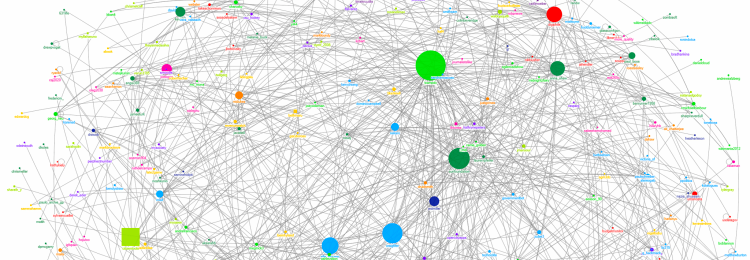


People Need People – A Poem by Benjamin Zephaniah
People need people, To walk to To talk to To cry and rely on, People will always need people. To love and to miss To hug and to kiss, It’s useful to have other people. To whom to moan If you’re all alone, It’s so hard to share When no one is there. There’s not much to do When there’s no one but you. People will always need people. To please To tease To put you at ease, People will always need people. To make life appealing And give life some meaning, It’s useful to have other people. It you need a change To whom will you turn. If you need a lesson From whom will you learn. If you need to play You’ll know why I say People will always need people. As girlfriends As boyfriends From Bombay To Ostend, People will always need people- To have friendly fights with And share tasty bites with, It’s useful to have other people. People live in families Gangs, posses and packs, Its seems we need company Before we relax, So stop making enemies And let’s face the facts, People will always need people, Yes People will always need people. –Benjamin Zephaniah Poem by Benjamin Zephaniah, illustration by Phil Hankinson, direction and animation by Jonnie Lyle, production and development by Joanna Brown. Created by Goosepimple...
The Laughter Epidemic: An Example of How Much We’re Connected and Affected by Others’ Emotions
Tanzania 1962: In a girls’ boarding school in Africa, three students suddenly started laughing uncontrollably. Six weeks later, more than half the school had been infected. The school was closed and people were sent back to their towns and villages. Ten days later, another curious thing happened: the laughter broke out again in a village over 55 miles away, where some of the students lived. 100s more were affected. Other outbreaks started over a wide area, until the epidemic peated out over six months. By then, over 1,000 people had been affected, though they all fully recovered. So why did it happen? Some villagers thought it was caused by radiation poisoning, and doctors were called in to investigate. Their findings: mass psychogenic illness. Emotions of all kinds can spread quickly. How you feel depends on how others feel. In fact, even a friends’ friends’ friend can affect you. We’re biologically hardwired to mimic people around us. By copying others’ outward behavior, we also adopt their inner emotions: your friend feels happy. She smiles. So you smile, and you feel happier. Positive emotions like this can fuel an emotional stampede, which can often last longer than a stampede of negative emotions. –Excerpt from the above video, “Laughter Epidemic.” Image: "The three gigglers" by Alan...
What Is Social Contagion? How the Spread of Obesity Is an Example of Social Contagion
Social contagion is the spread of thoughts, emotions, and behaviors from person to person and among larger groups as affected by shared information and mimicry. Paul M. Kirsch, “The Influence of Social Contagion and Technology on Epidemic Non-Suicidal Self-Injury,” 2012. The Spread of Obesity: An Example of Social Contagion Social contagion actually may account for as much, or perhaps, even more of a person’s risk of obesity than genetic and other factors that have been previously studied. Academic research shows that, at least in the American population, and maybe in the international population as well, that we are all connected to one another by six degrees of separation. Your friends’ friends’ friends’ friends’ friends’ friend, for example, is going to include just about everybody in the population. And what we find, remarkably in the study, is that although the average degree of separation between individuals is six, here your influence extends up to three degrees of separation. And so, halfway, pretty much half the distance into the social network, your health behavior is having an impact on other people. –Dr. James Fowler in “Obesity and Social Networks – CBS.” Mindless Eating – Explaining Obesity in Terms of Social Contagion Image: "TransparencyCamp 2012 - #tcamp12 social network graph [1/2]"...
How to Shift from Competitive Individualism to Cooperation for a Greater Good
Cooperation—not competition—underpins innovation. To spur creativity, and to encourage people to come up with original ideas, you need to use the lure of the carrot, not fear of the stick. Cooperation is the architect of creativity throughout evolution, from cells to multicellular creatures to anthills to villages to cities. Without cooperation there can be neither construction nor complexity in evolution. –Martin Nowak with Roger Highfield, SuperCooperators: Altruism, Evolution, and Why We Need Each Other to Succeed. In recent papers, Dr. Martin Nowak has argued that cooperation is one of the three basic principles of evolution. The other two are mutation and selection. On their own, mutation and selection can transform a species, giving rise to new traits like limbs and eyes. But cooperation is essential for life to evolve to a new level of organization. Single-celled protozoa had to cooperate to give rise to the first multicellular animals. Humans had to cooperate for complex societies to emerge. “We see this principle everywhere in evolution where interesting things are happening,” Dr. Nowak said. While cooperation may be central to evolution, however, it poses questions that are not easy to answer. How can competing individuals start to cooperate for the greater good? And how do they continue to cooperate in the face of exploitation? To answer these questions, Dr. Nowak plays games. The B/C>K Equation = When the Benefit-to-Cost (B/C) Ratio of Cooperation Is Greater than the Average Number of People in the Network (K), then Cooperation Emerges As Dr. Nowak developed his neighborhood game model, he realized it would help him study human cooperation. “The reality is that I’m...
